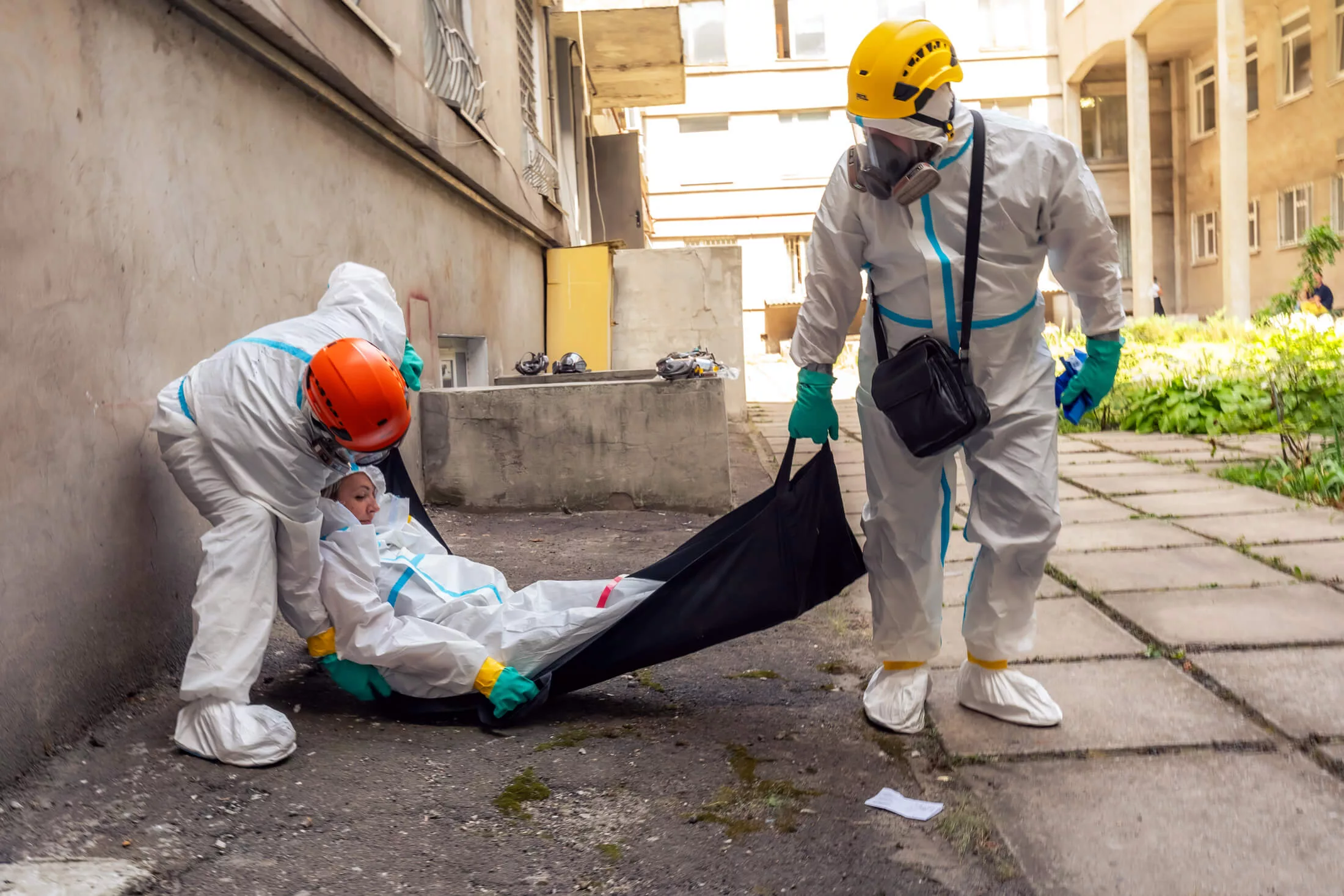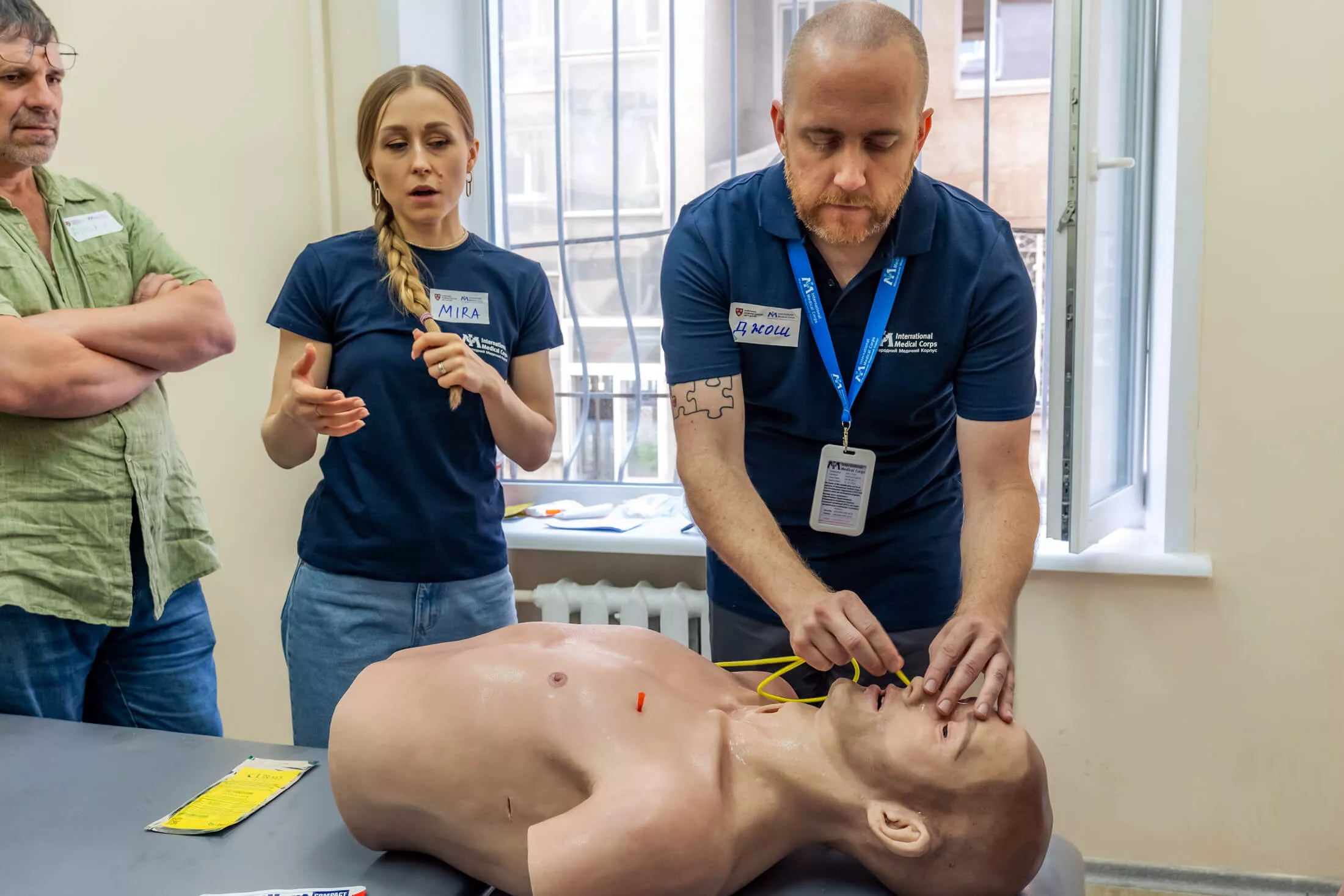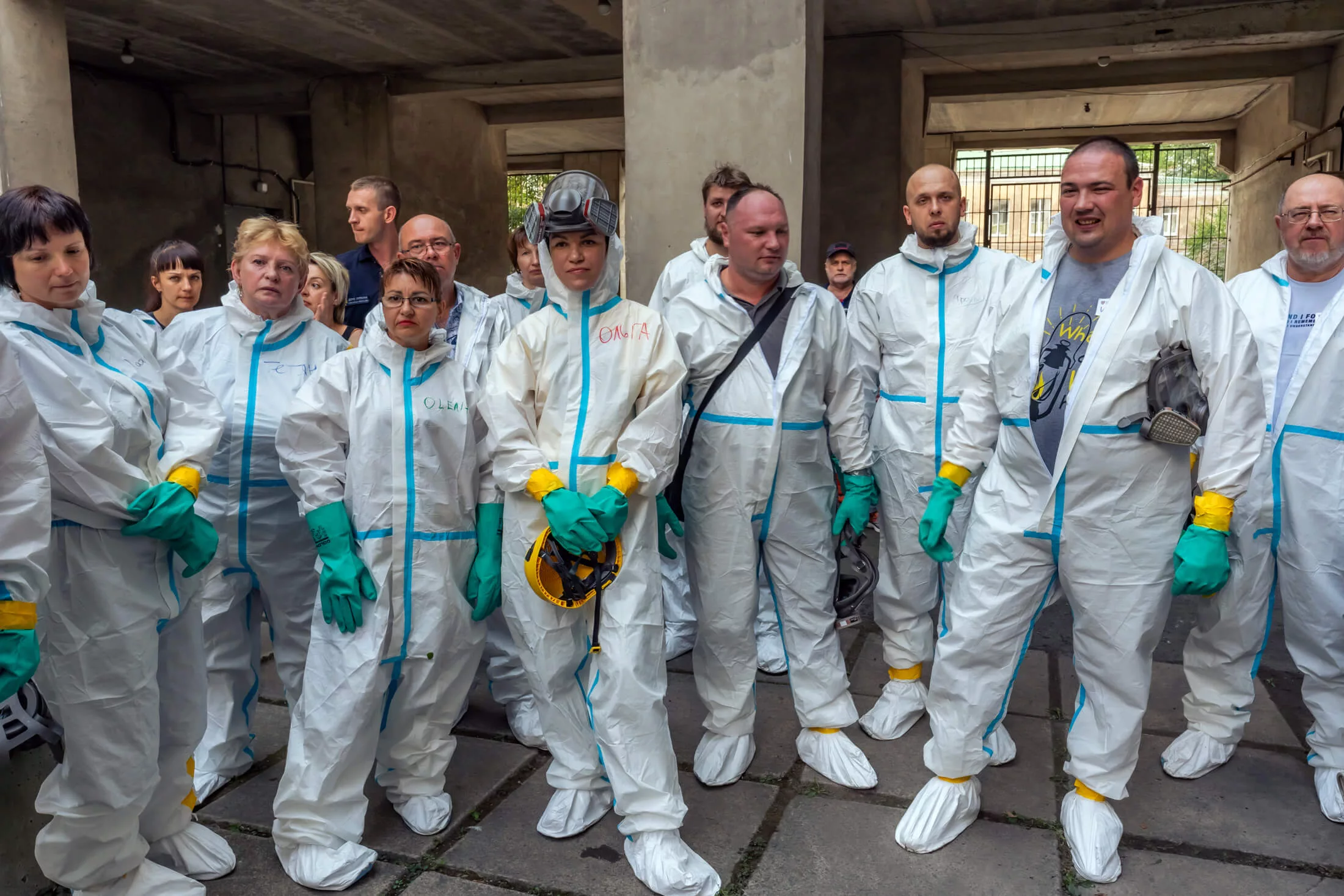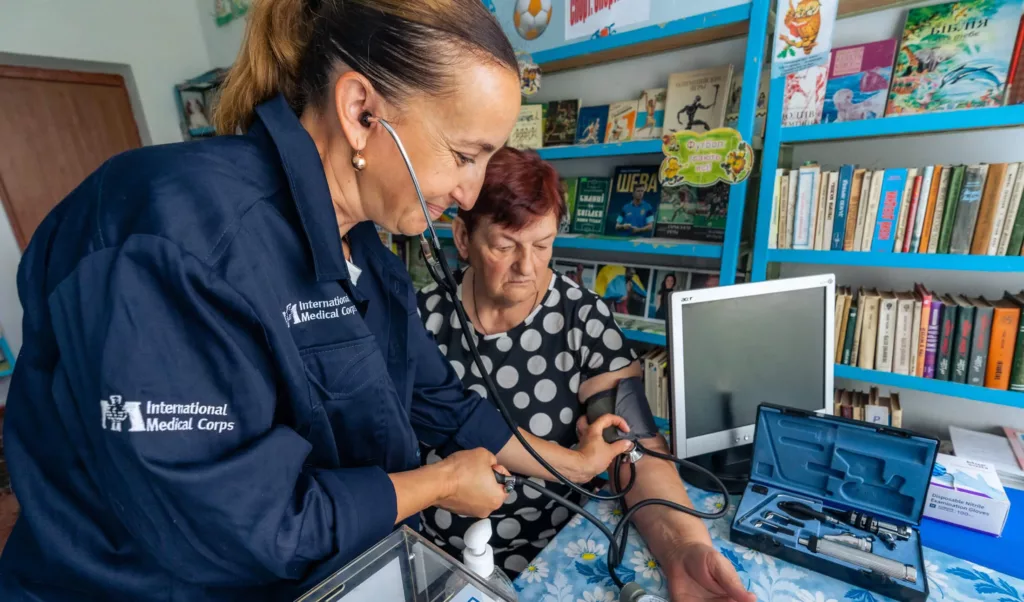International Medical Corps’ history in Ukraine dates back to 1999, but we’ve worked consistently in the country since 2014, when conflict broke out in the southeast. Based in Mariupol, our team provided outpatient primary healthcare, mental health and psychosocial support (MHPSS), gender-based violence (GBV) prevention and treatment services, and immunization support. When Russia invaded Ukraine in February 2022—displacing millions of people and creating an urgent need for humanitarian assistance—we immediately began expanding our relief efforts throughout the country to meet new needs that emerged in the wake of war.
In the past two years, we have reached more than 9.7 million people with health services, supplies and equipment, and have supported about 380 health facilities with medical goods and medicines. We’ve helped more than 73,000 people through mental health and psychosocial support (MHPSS) sessions. And we’ve helped 39,000 children under 5 by providing their parents and caregivers with nutrition counseling, complementary foods and hygiene supplies, including diapers.
Let’s take a look back at some of the ways we’ve helped over the past two years.
Mobile Medical Units
In Ukraine, accessing healthcare can be difficult. In many parts of the country, hospitals and infrastructure have been destroyed or impaired. And for many people, the nearest healthcare facility is too far away. That’s why we’ve been deploying mobile medical units (MMUs) throughout the country to cover villages that do not have access to medical support. Healthcare workers staffing these MMUs are able to diagnose and treat disease and chronic health conditions, dispense medications and refer people who need more advanced care to regional hospitals.
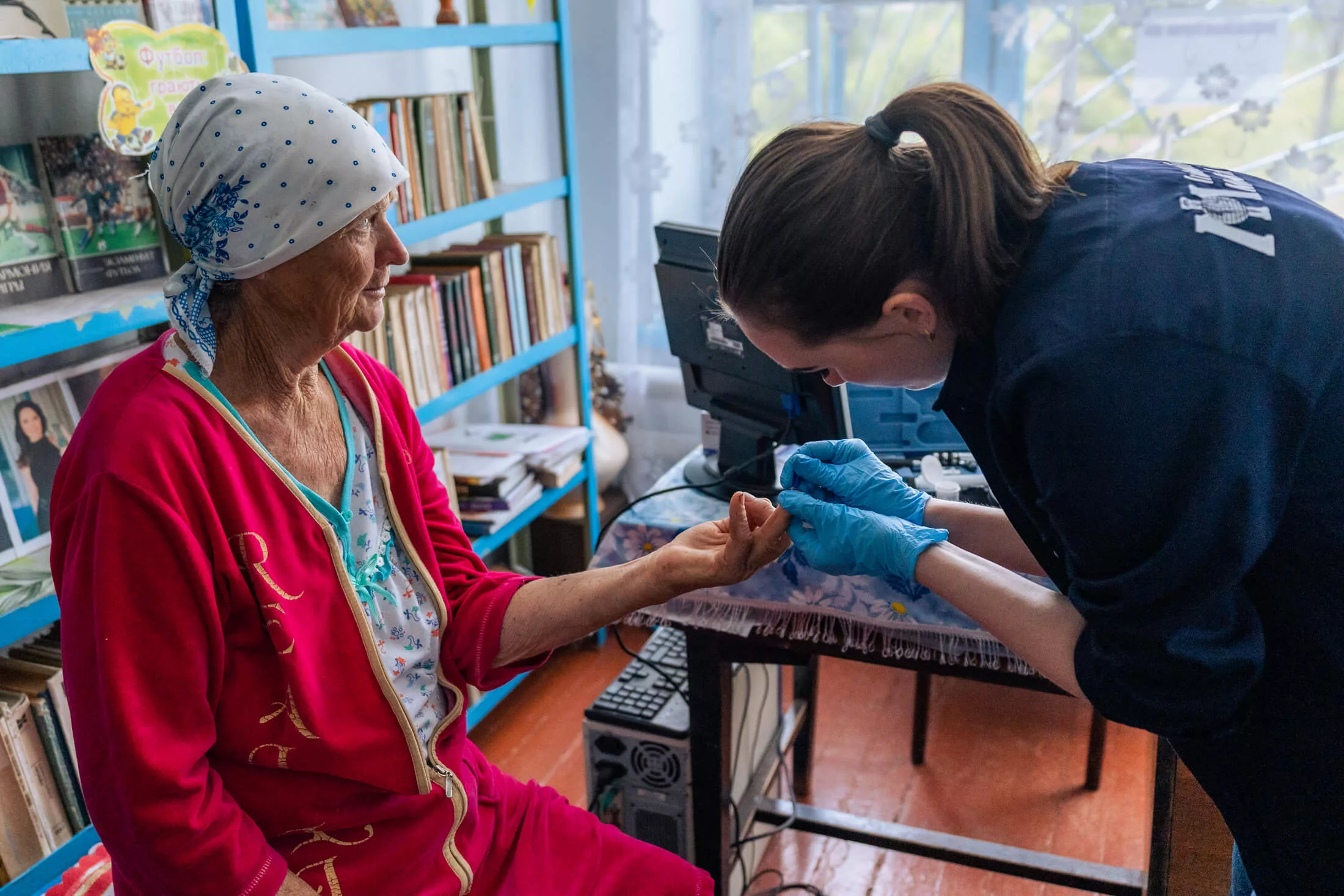
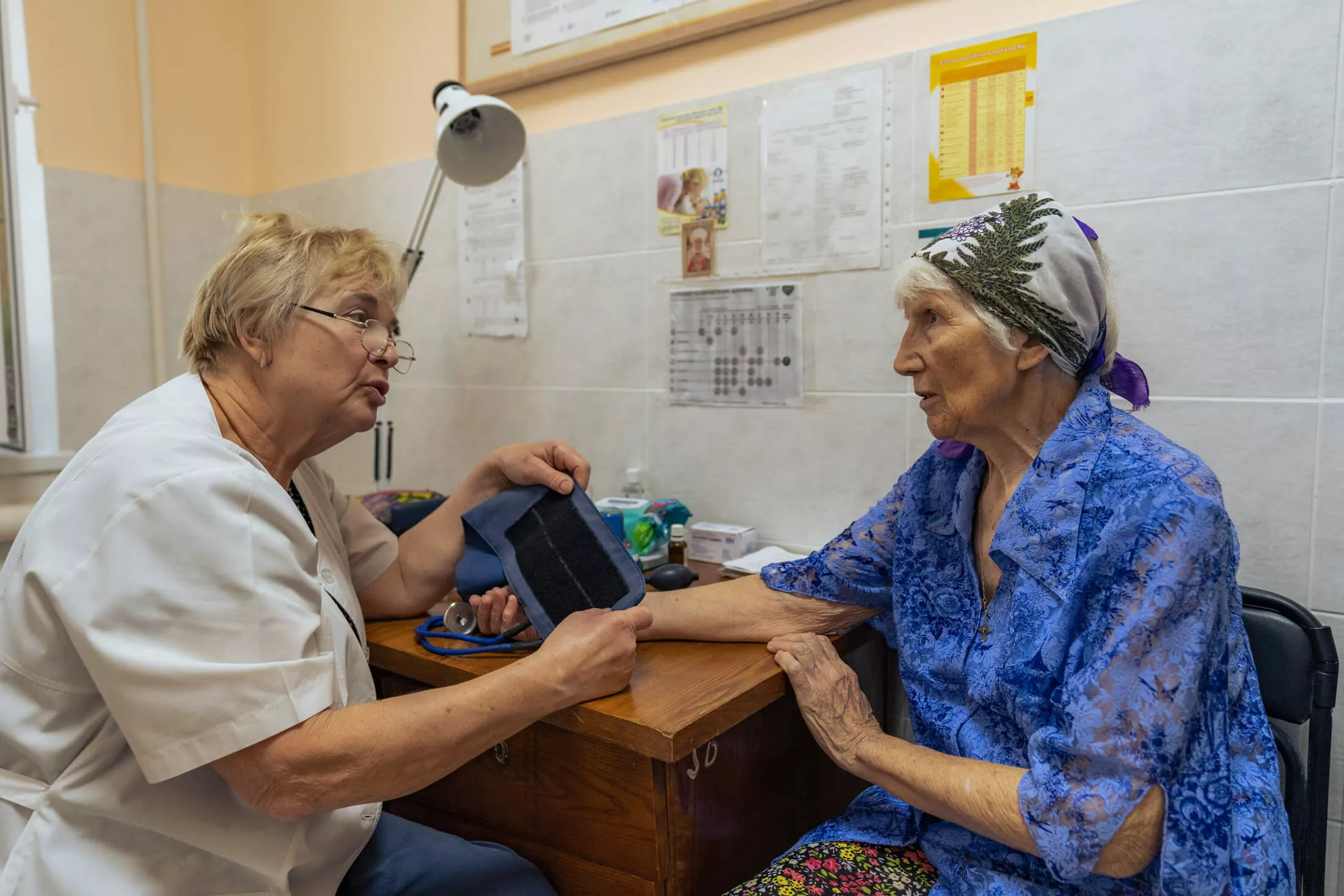
Health Services Support
The Odesa Regional Center for Emergency Medical Care and Disaster Medicine had been facing an increasing workload due to the large number of internally displaced persons in the area—but an increase in road accidents severely damaged the center’s ambulance fleet. When our team received a request from the center to repair six of its damaged ambulances, we helped get its ambulances fixed free of charge.
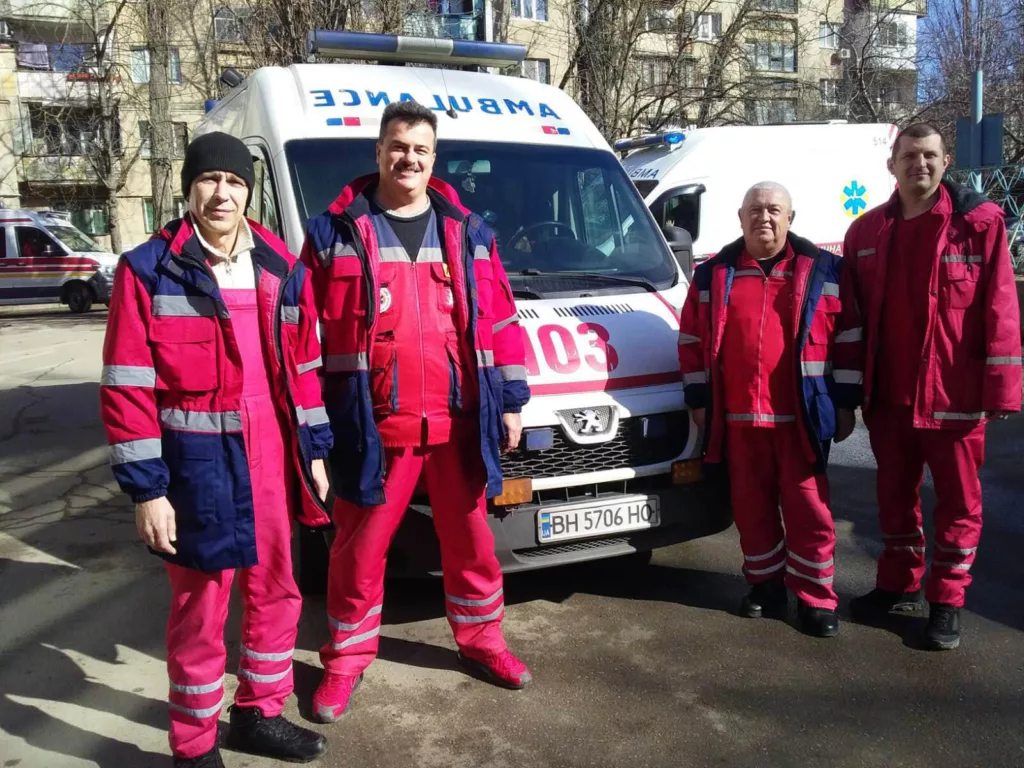
Maternal Health
As part of our strategy to help each region of Ukraine according to its needs, International Medical Corps helped to strengthen hospitals near the frontlines, enabling them to continue operating in the event of attack. In Odesa, we worked with Maternity Hospital No. 5, which handles the most complicated maternity and neonatal cases in the region, to help it prepare. We provided new equipment throughout the hospital, and worked with staff there to outfit the basement with all the equipment and supplies they need—including a fully functional neonatal intensive-care unit (NICU)—to care for mothers and babies if the hospital comes under attack.
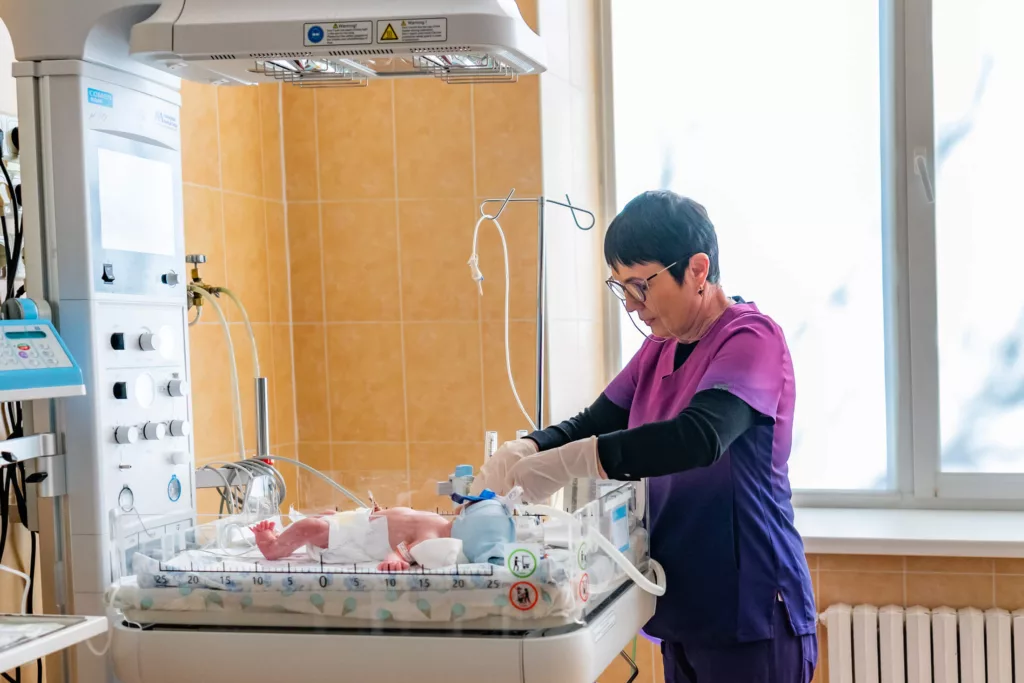
Iryna Puhach is originally from Kharkiv in northeast Ukraine. She moved to Odesa in 2021 and was pregnant with triplets when the fighting started. After she developed pregnancy-related complications, she was admitted to Maternity Hospital No. 5, which International Medical Corps supports. Though Iryna went into premature labor at 31 weeks, she had a normal birth under the supervision of the medical staff at the hospital, and her triplets were born healthy.
Hanna chose the Pervomaysk Maternity Hospital to give birth in November 2023 because of the comfort level and the availability of good doctors and modern treatment methods. The hospital, about 140 miles north of Odesa, had previously witnessed a large influx of internally displaced persons, and medical staff could not cope with the high patient demand. When hospital authorities approached International Medical Corps asking for help, we conducted an assessment and donated test kits, furniture (including beds and examination chairs) and medicines to the hospital.
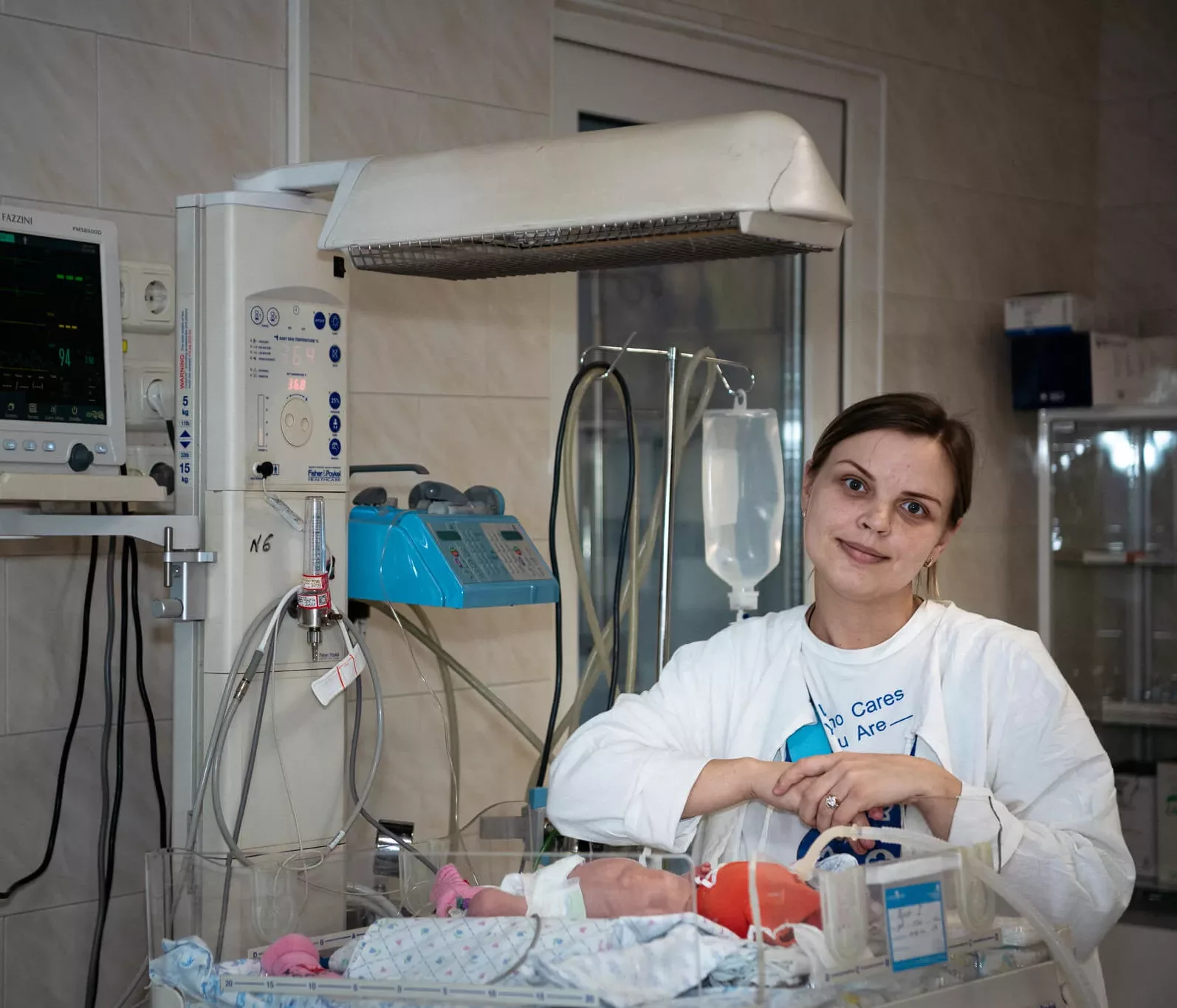
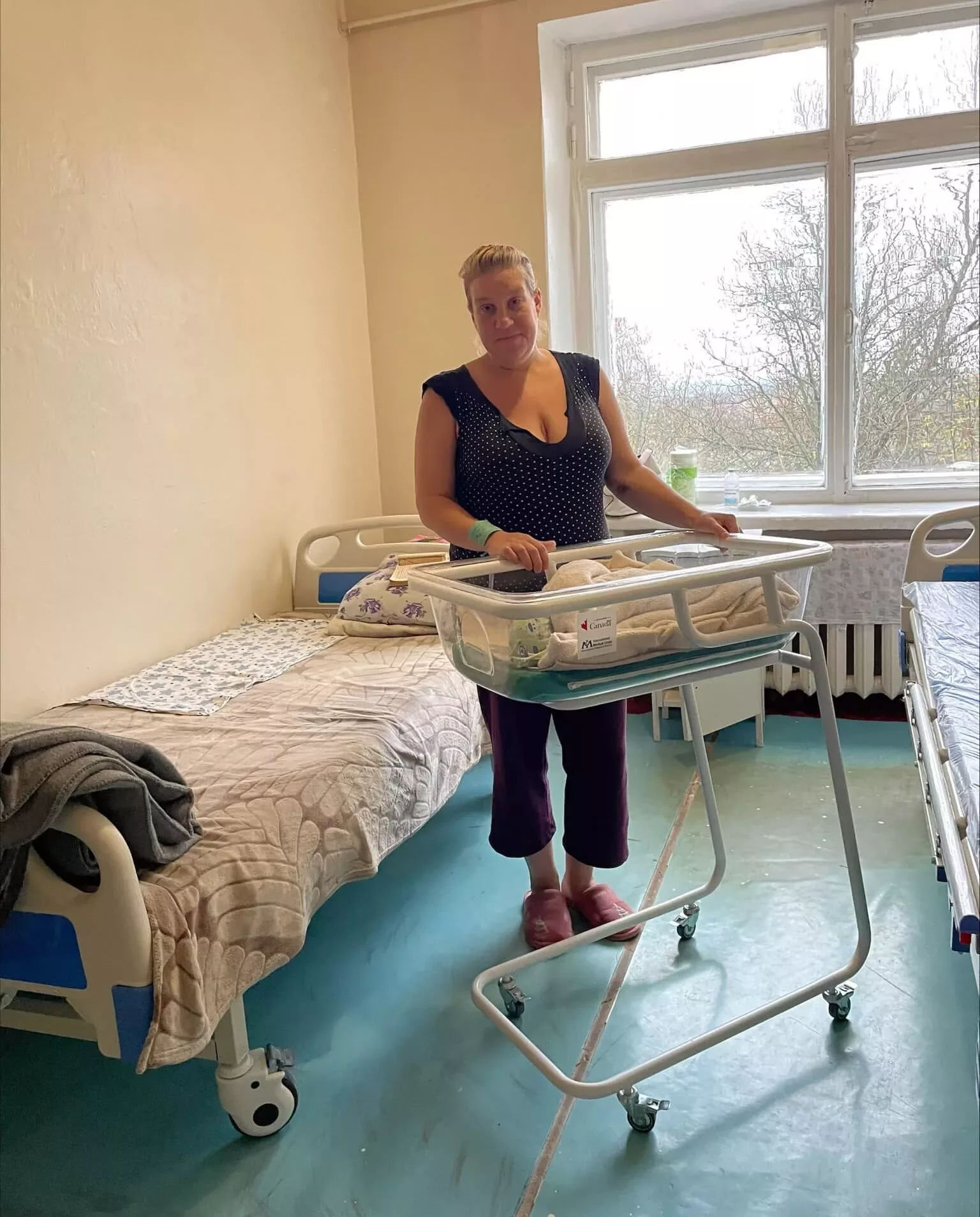
Nutrition
Our nutrition team supports mothers with infants and young children, providing counseling about recommended nutrition practices for children under 2 years of age. We’ve set up mother-baby spaces and, during good weather, held activities in local parks so that mothers can learn about the importance of breastfeeding and proper nutrition, while their children play in a safe environment.
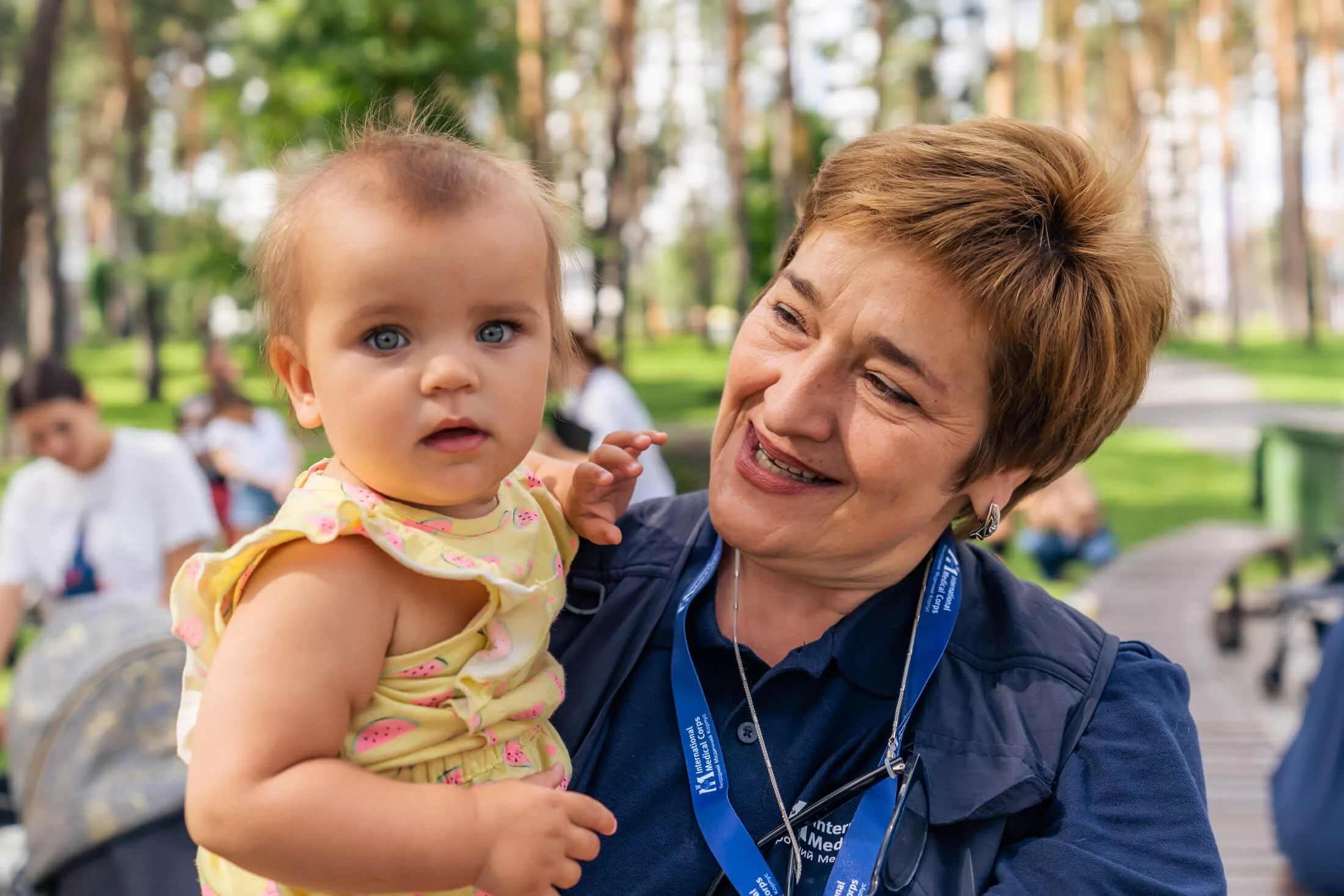
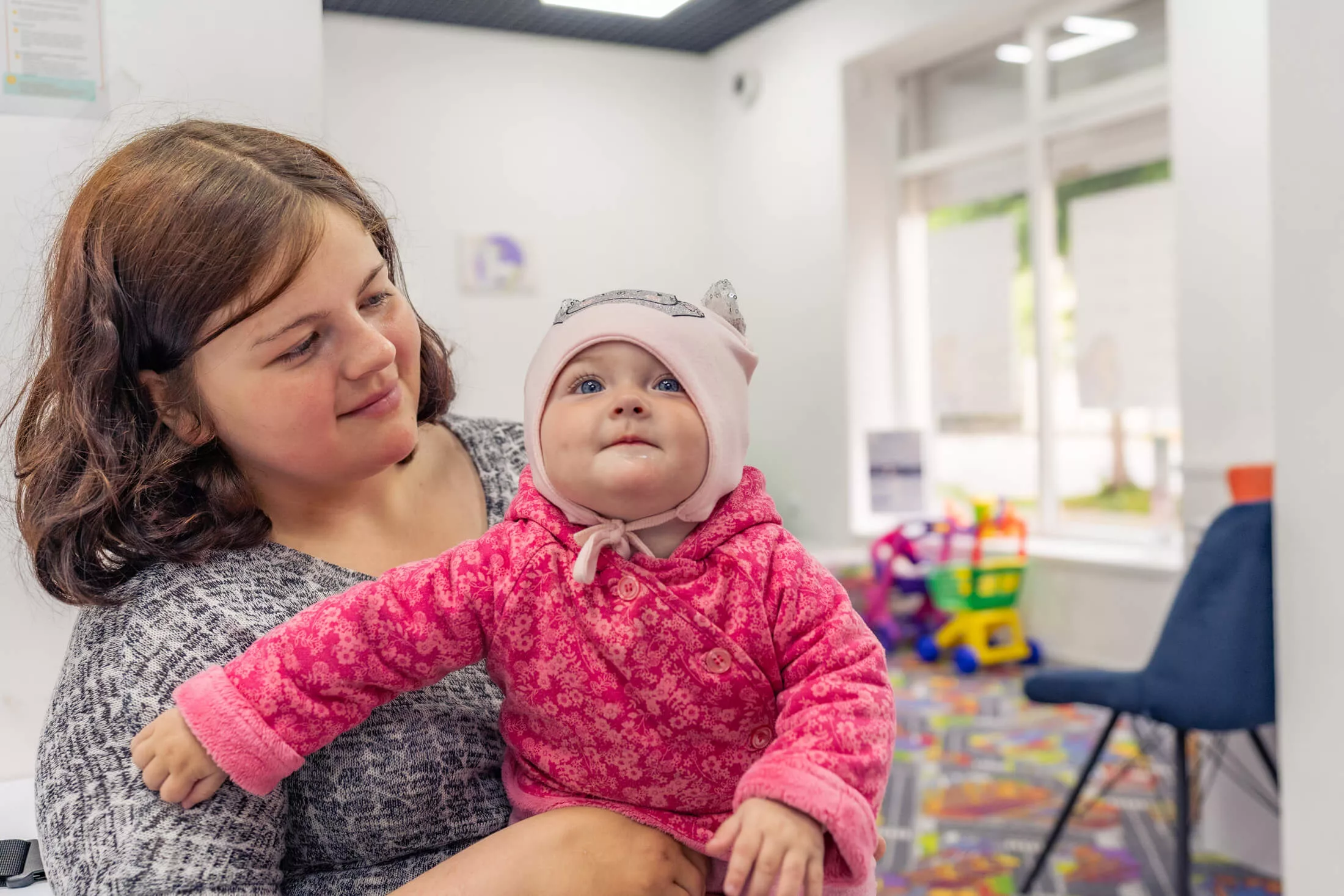
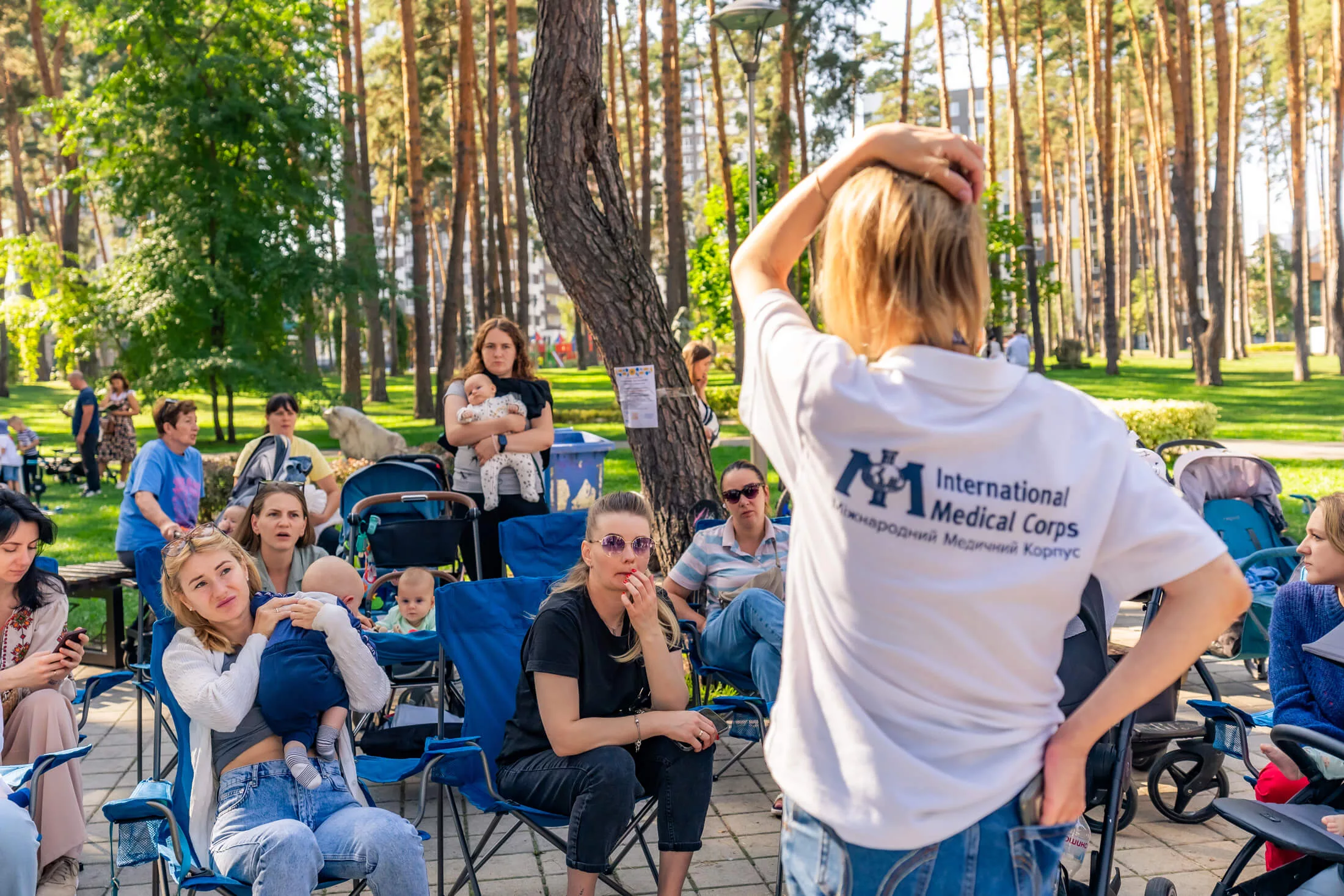
Food Security and Livelihoods
International Medical Corps provides multi-purpose cash assistance (MPCA)—which includes cash or vouchers that people can use to purchase goods and services—to qualified people in need. MPCA provides the flexibility that vulnerable populations need when confronting the rapidly evolving challenges found in warzones. Our cash assistance team visited Bashtanka in February 2023 and, working with the local government, registered hundreds of people who needed the ability buy supplies to repair their homes, purchase items such as food or warm clothing, or pay down debt they may have incurred while trying to survive the occupation.
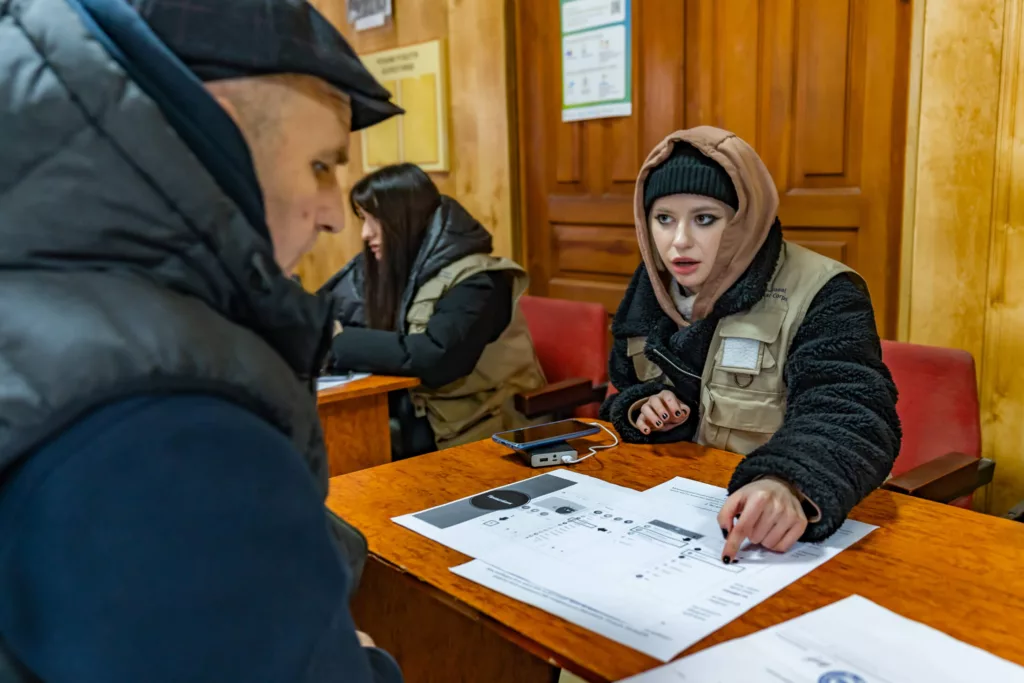
Gender-Based Violence
Our teams have reached more than 48,000 people through gender-based violence (GBV) prevention and response services. In these photos, women sing and recite poems at our Women’s and Girls’ Safe Space (WGSS) in Irpin during a September 2023 music and poetry event held there. WGSS provide women and girls with a place where they can socialize and rebuild social networks, receive life-skills training and participate in GBV and psychosocial support activities to relieve stress and difficulties related to the war.
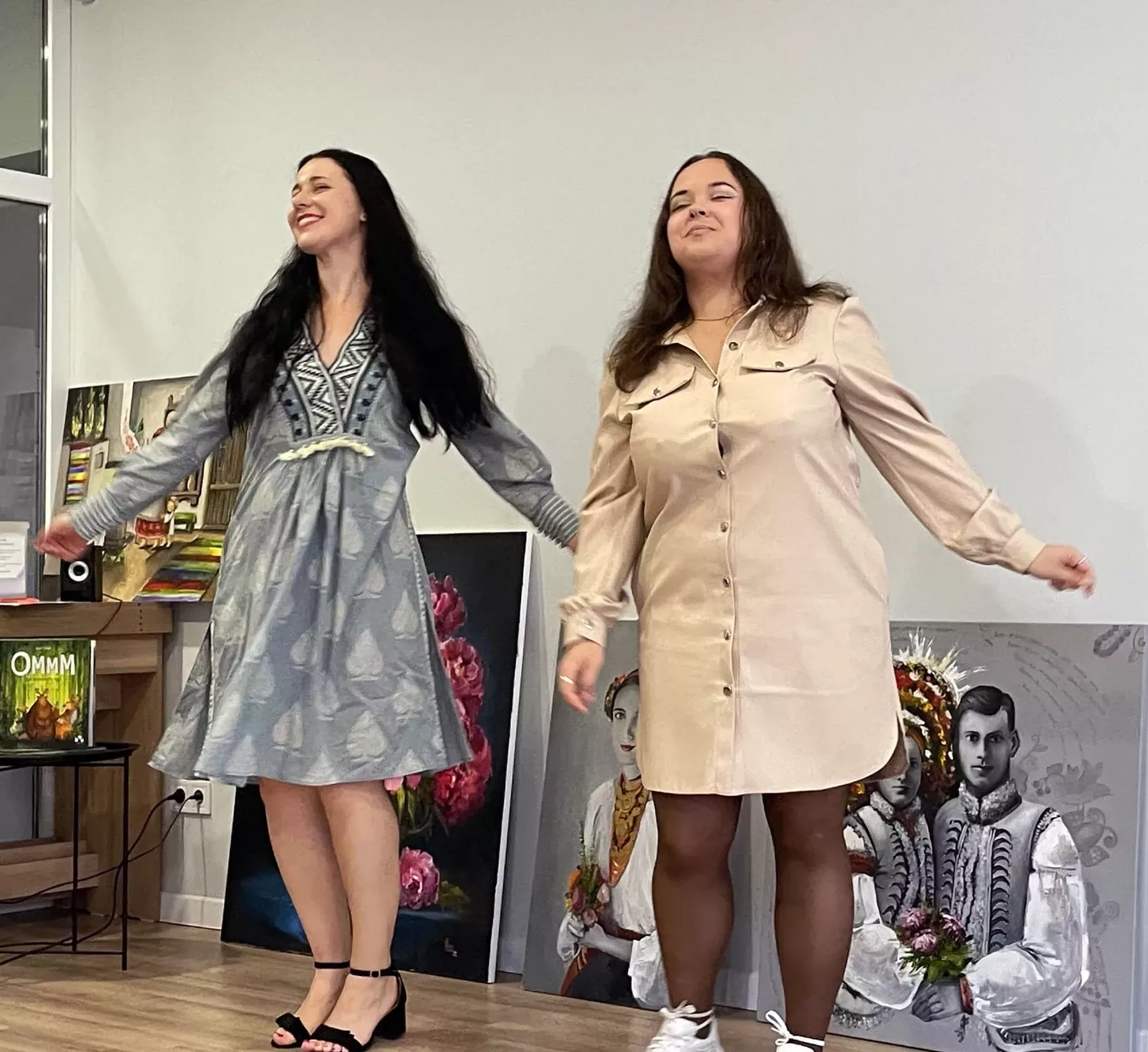
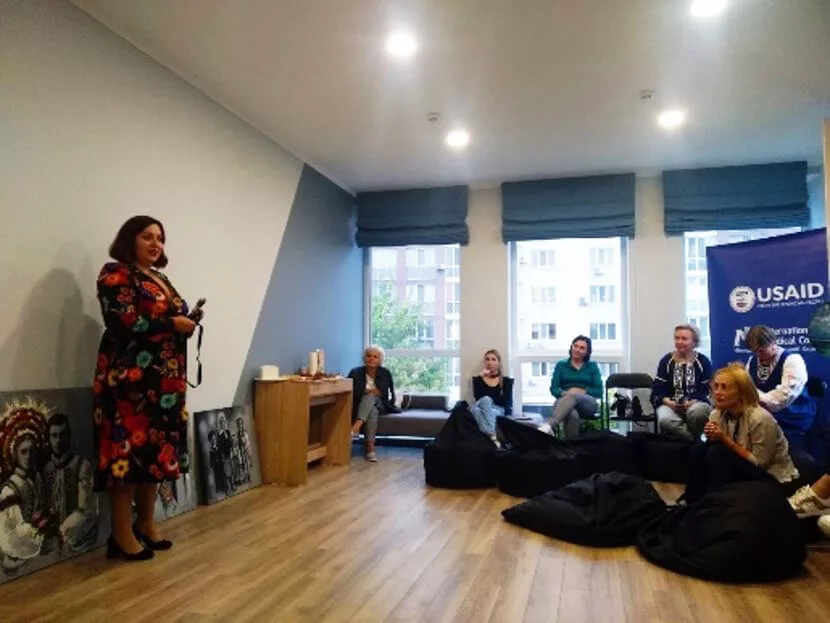
MHPSS
Our mobile medical units (MMUs) in Ukraine provide a variety of medical and mental health services, including psychological consultations and support to people affected by the war. Mobile teams of psychologists and social workers visit villages regularly and offer individual and group sessions, as well as referrals to other services as needed, as shown in this photo, where staff from an MMU speaks with a woman from the village of Dibrova, in October 2023.
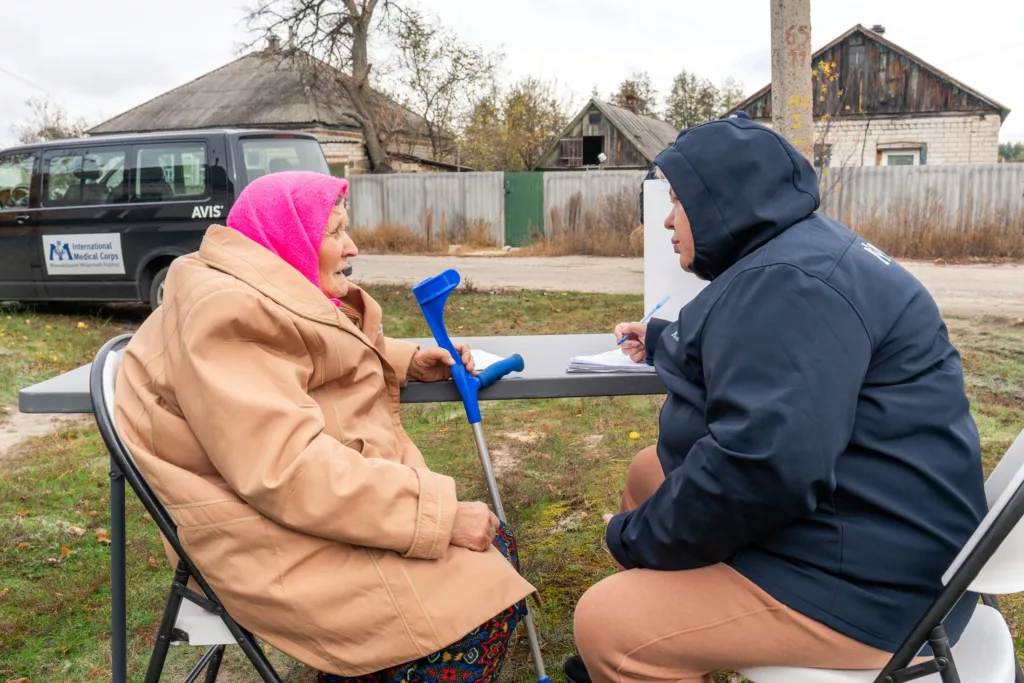
Our teams provide all types of training throughout Ukraine. In this photo, staff members conduct a Mental Health Gap Action Program (mhGAP) “training for trainers” in Kyiv in November 2023 to help medical staff compensate for the lack of mental health professionals in some areas. By training local physicians and showing them the benefits of integrating mental health services in primary healthcare services, we are increasing capacity in a country where a significant portion of the population is dealing with mental health issues as a result of the war.
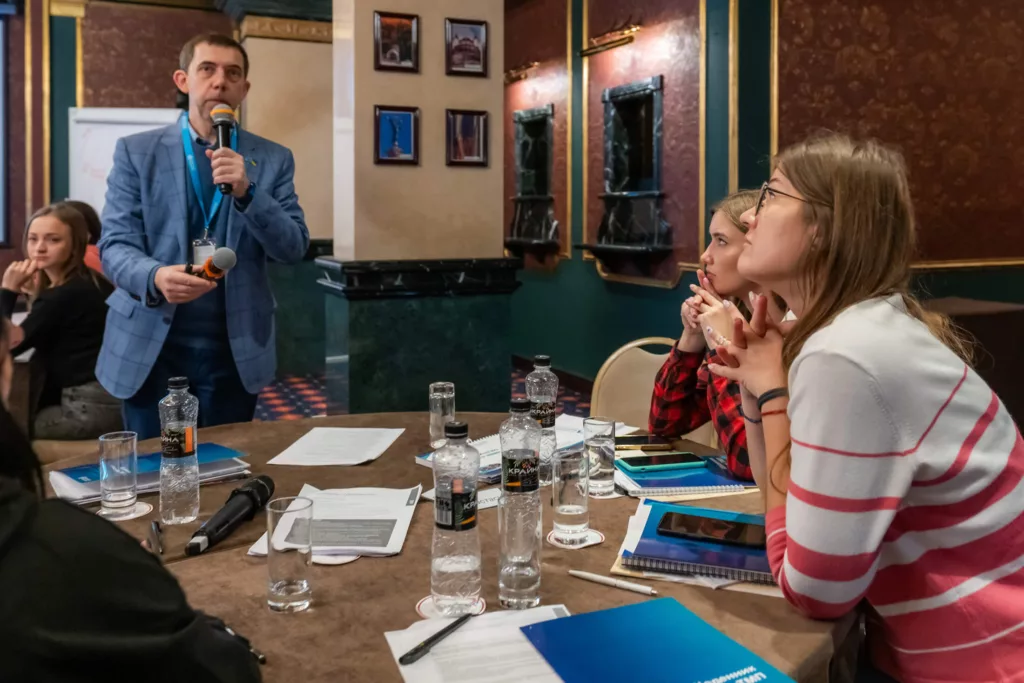
Water, Sanitation and Hygiene
Hospitals need clean water to provide care, which is why International Medical Corps is helping to strengthen the healthcare system in Odesa and other frontline cities by providing alternative water sources that will enable facilities to continue operating in the event of attack. One part of our strategy involves drilling boreholes to ensure that healthcare facilities have clean water even if their municipal water system is damaged or destroyed.
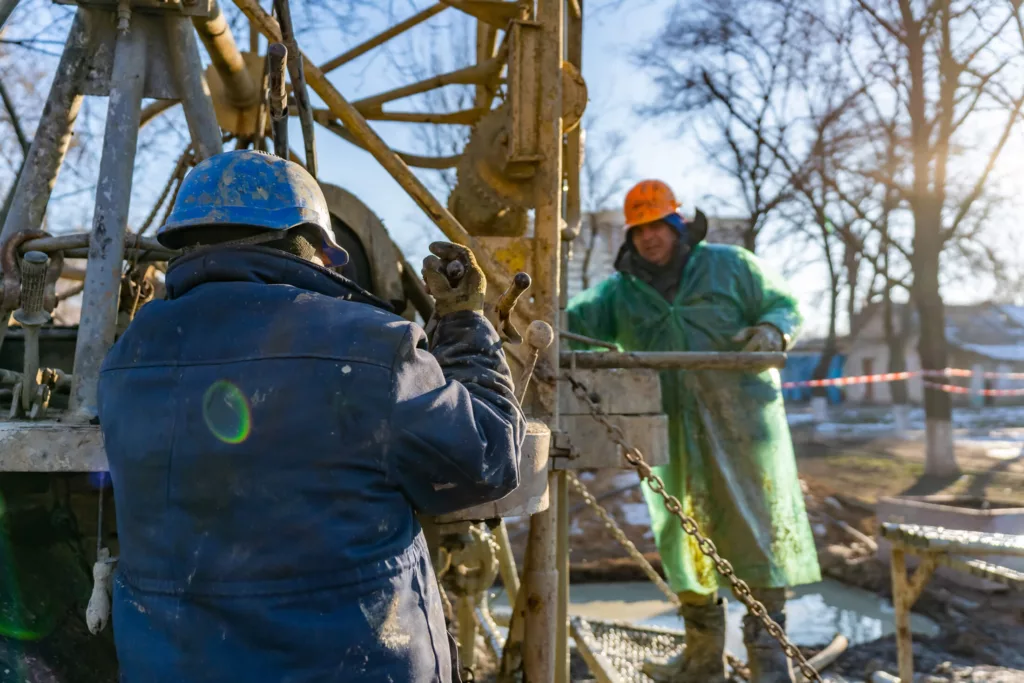
As part of our emergency response strategy, we have been distributing hygiene kits that contain essential supplies to vulnerable groups, including older people, people with disabilities, widows and internally displaced persons. Because needs evolve rapidly in conflict zones, our response is tailored to meet the needs of each region. This photo shows women carrying a hygiene kit they received during a distribution in Kapitolivka, in Kharkivska oblast, in November 2022. Nearly 1,500 families received kits during this particular distribution. Since February 2022, we have distributed more than 9 million non-food items in kits like these.
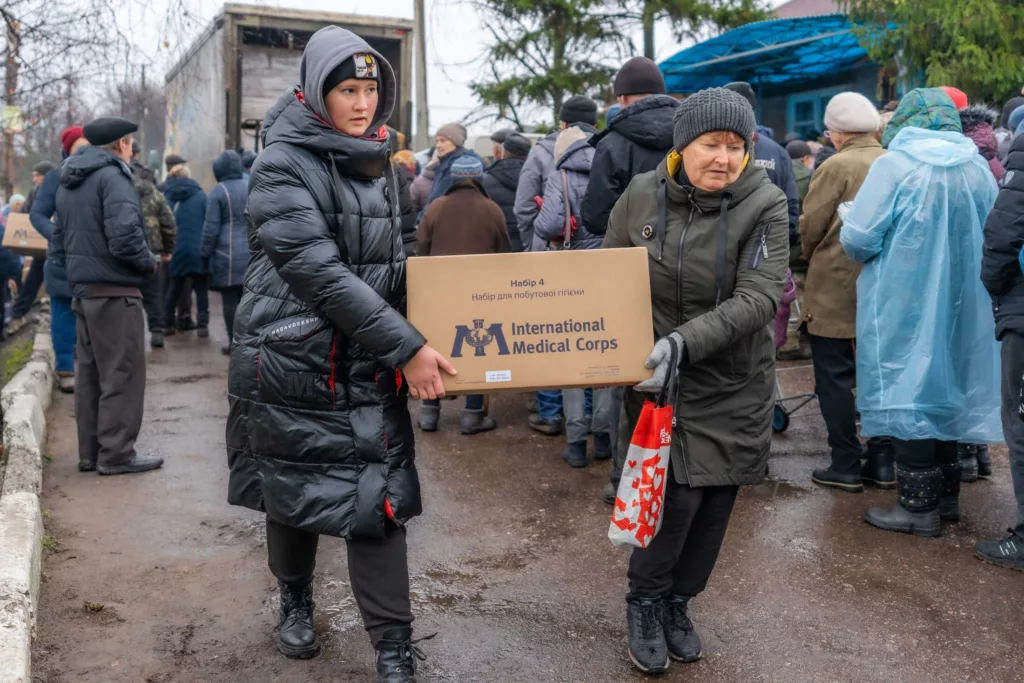
Since the start of the conflict, we have distributed more than 1.6 million liters of potable drinking water to more than 50 frontline communities in the Donetsk, Kherson, Mykolaiv and Kharkiv oblasts. In these photos, people in the town of Novovorontsovka receive drinking water in June 2023, shortly after the destruction of the nearby Kakhovka dam.
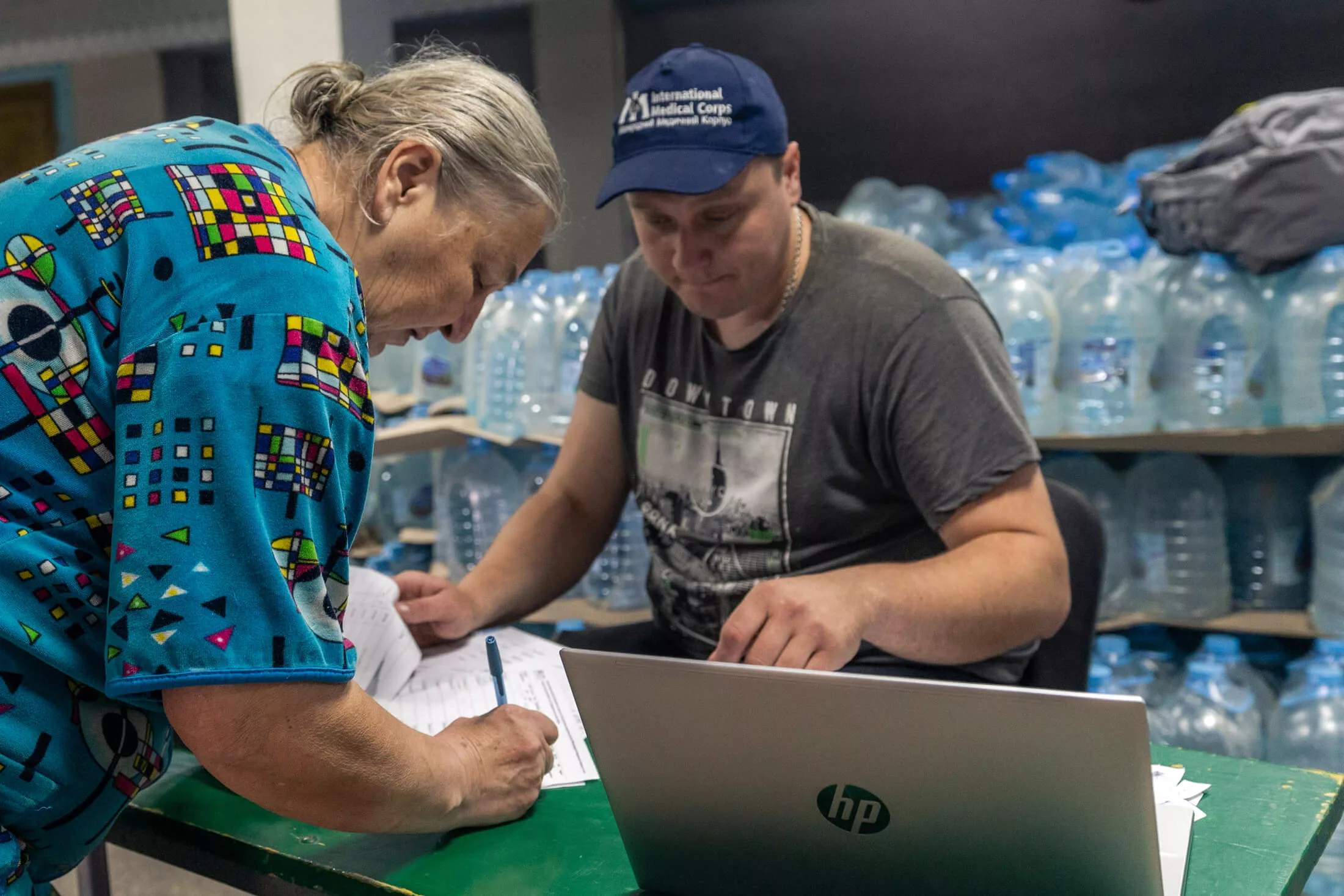
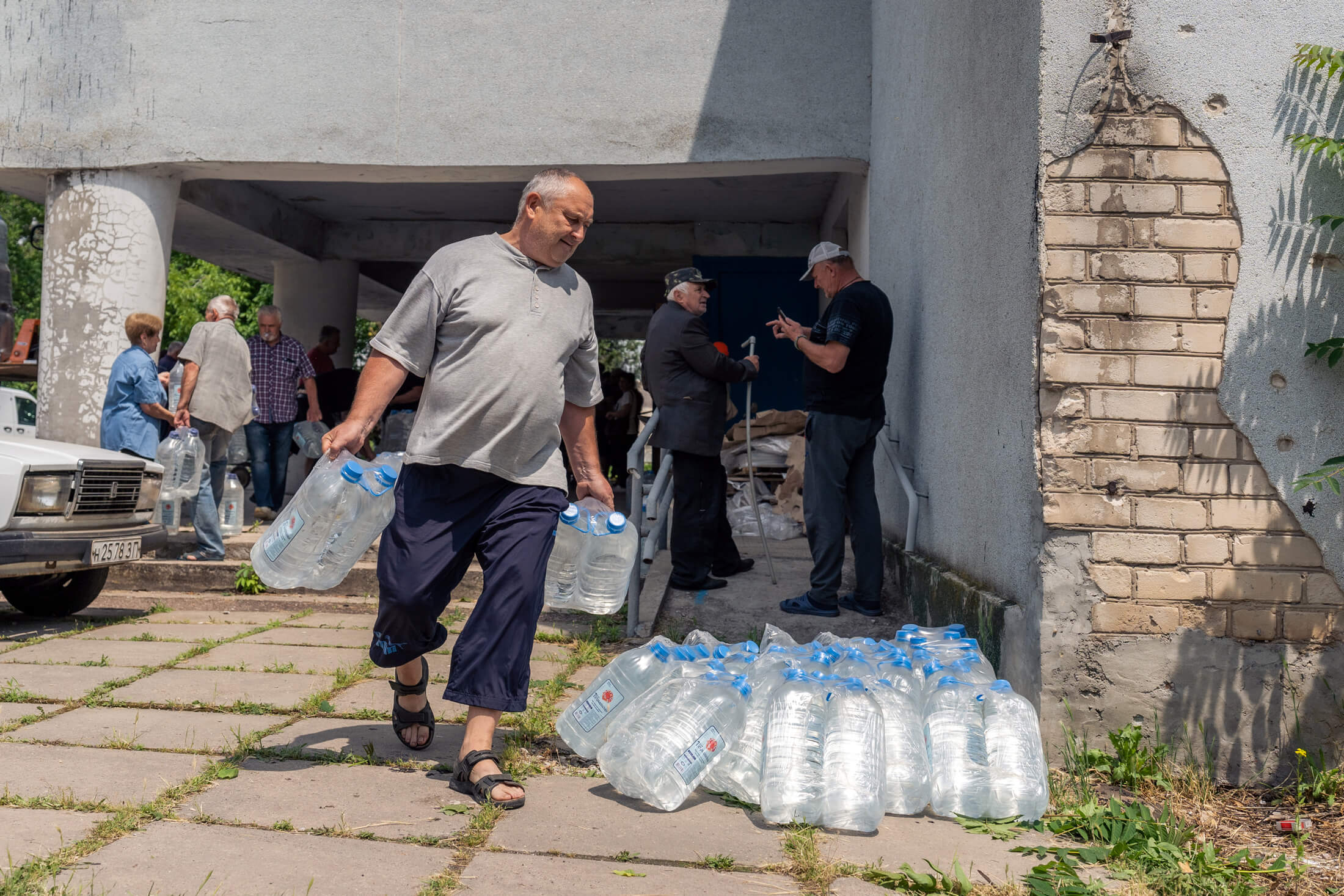
Training
At the request of Ukraine’s Ministry of Health, International Medical Corps and a consortium led by Harvard Humanitarian Initiative (HHI) have implemented a series of training sessions across the country focusing on emergency and trauma care. The sessions—provided in person and online, in Ukrainian—strengthen emergency-care preparedness and capacity in response to trauma-related needs during wartime. So far, more than 6,000 healthcare workers, hospital administrators and civilians have learned about emergency and trauma care and mass-casualty management during the in-person sessions, while millions have viewed the online videos.
